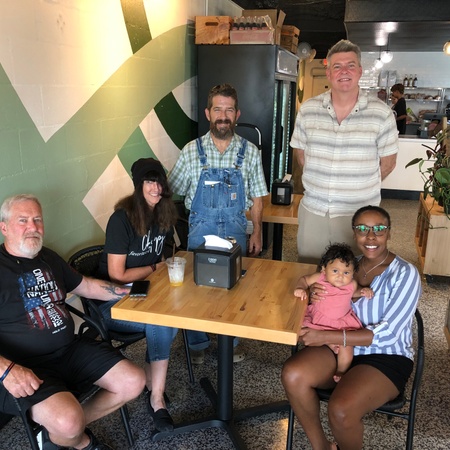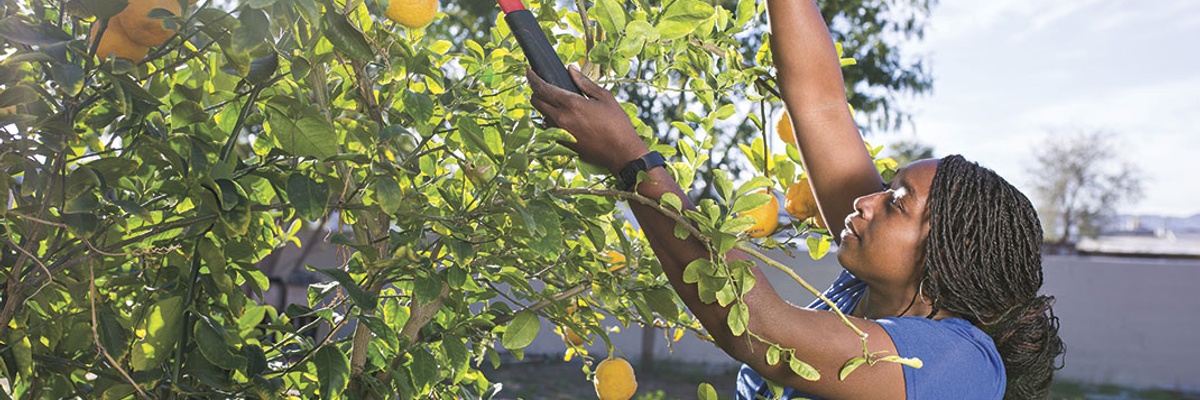

"The best time to plant a tree was 20 years ago. The second best time to plant a tree is today"- Chinese proverb
The Open Orchard Project connects communities through fruits and the planting of fruit trees in public places. These trees provide free fruit to local residents and greenery to our urban environments. Open Orchard started in London, England but the idea is just as relevant elsewhere so we love to see Open Orchard groups start up and plant fruit trees on public land across many more cities.
The environmental effects of planting trees takes time. A newly planted tree will offer some extra pollination opportunities and absorb a small amount of carbon dioxide and additional rainwater that might have gone into drains, however year on year, these positive effects increase as the tree grows.
Since the fruit trees are planted on public land it is necessary to have buy-in from the local council, but for the project to really be sustainable, engaged communities need to act as the custodians of the trees. The project can give neighbours the opportunity to meet properly for the first time, while working towards a common goal with a sense of purpose. In many areas, especially urban ones, this can be very important. Even if neighburs move away from the area the trees will live for 20-30 years - and remain a shared connection and legacy.
The fruit harvested from the trees can provide the community with a new source of fresh food. It can be eaten raw or used to produce other products (which in years to come could be an opportunity for a social business).
"The best time to plant a tree was 20 years ago. The second best time to plant a tree is today"- Chinese proverb
The Open Orchard Project connects communities through fruits and the planting of fruit trees in public places. These trees provide free fruit to local residents and greenery to our urban environments. Open Orchard started in London, England but the idea is just as relevant elsewhere so we love to see Open Orchard groups start up and plant fruit trees on public land across many more cities.
The environmental effects of planting trees takes time. A newly planted tree will offer some extra pollination opportunities and absorb a small amount of carbon dioxide and additional rainwater that might have gone into drains, however year on year, these positive effects increase as the tree grows.
Since the fruit trees are planted on public land it is necessary to have buy-in from the local council, but for the project to really be sustainable, engaged communities need to act as the custodians of the trees. The project can give neighbours the opportunity to meet properly for the first time, while working towards a common goal with a sense of purpose. In many areas, especially urban ones, this can be very important. Even if neighburs move away from the area the trees will live for 20-30 years - and remain a shared connection and legacy.
The fruit harvested from the trees can provide the community with a new source of fresh food. It can be eaten raw or used to produce other products (which in years to come could be an opportunity for a social business).
Our second planting day for our tropical fruit trees is April 20th! Please mark your calendars!
We are finalizing our list of tropical trees for our planting next month and hope to have a list finalized my the first week of April!
Please email any suggestions or ideas you have!
So far we have:
2 Avocados
Mango(s?)
2 Lemon
Key lime
2 Starfruit
Audrey will donate a monstera, a BIG guava, and other potential trees if space allows.
We have successfully planted our cold hardy trees with the help of kids and adults in our community. Our tropical trees will be planted in March and we look forward to harvesting fruit in the coming years to enjoy and share!
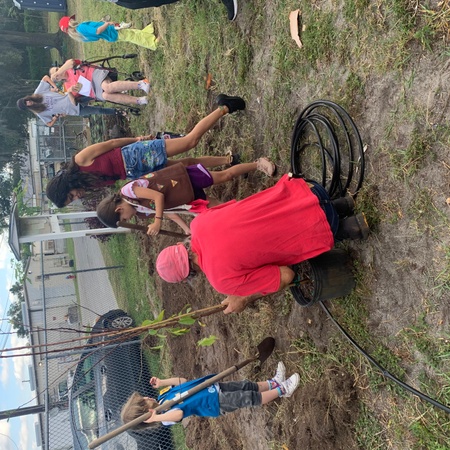
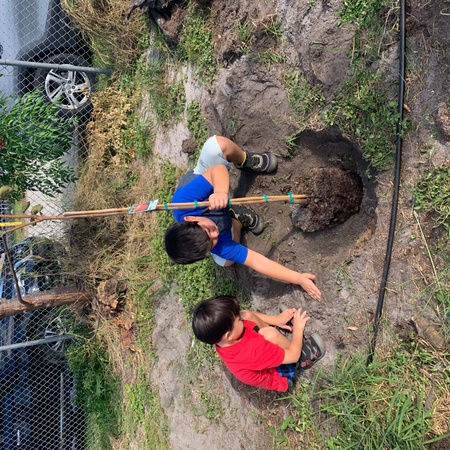
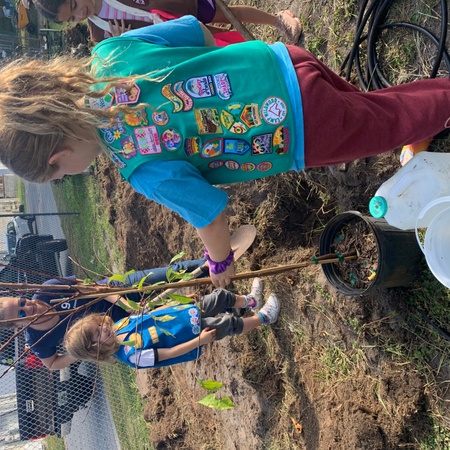
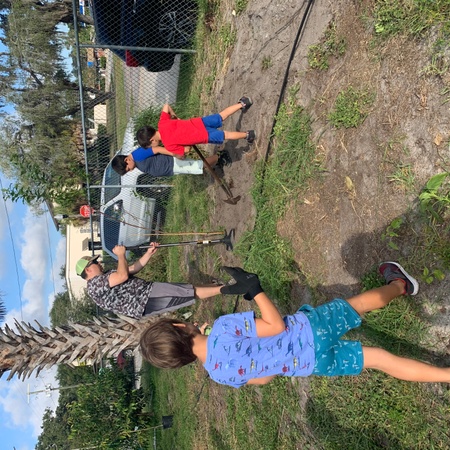
Next Saturday is planting day for our cold hardy plants! See you there!
Here's what happened at the planning meeting today-
We decided to split the planting days into two dates: the October planting and another in spring (for more cold sensitive, subtropical plants that might not establish well in the fall before a freeze).
Our primary area for the October day needs to be prepped. The plants selected thus far are pineapples, fig, plum/nectarine, and persimmon.
We welcomed Ashley and her daughters from Girl Scout Troop 1446! It was a pleasure having them in the garden and we all look forward to their involvement.
Here is a draft of our press release that can be shared with any potential kid leaders, interested volunteers, youth groups, community organizations, local businesses, etc. PLEASE SHARE!!
https://docs.google.com/document/d/15N-MSJ0OxvoMOwJe8Knp-YIu-WUIHg50Y_C4rp5H1DY/edit?usp=sharing
We have recieved our funding!
Our next step is to meet at the community garden on September 23rd at 8 AM to plan and select our fruit trees!
I have created a document that shows the pros and cons of each type, which can be accessed here-
https://docs.google.com/spreadsheets/d/1hNHZGc81M--VIAwjV5OakkHnqbsBi_G_O-Zh5oakuRM/edit?usp=sharing
Hooray, we unlocked the funding! ChangeX will review the details we submitted about the Open Orchard at Billie Dean Community Garden and they'll email me when everything is approved.
Our kickoff meeting yesterday was fantastic! We are actively searching for our kid leader and looking forward to our next meeting- 9AM on August 19th at Propagate Social House Apopka.
Action plan:
Timeline: We would like to plant the orchard in the fall, around October. In the time in between, every month leading to then we will have monthly planning meetings. The next meeting is August 19th, 9 AM at Propagate Social House in Apopka. We are actively looking for our "kid leader" and hope to find a suitable candidate in the next month or so.
Budget: We plan to alot $200 as a scholarship for our "kid leader" and $500 as an ongoing maintenance fund to establish the trees over a 5 year period. The maintenance fund will include fertilizer, mulch, stakes, shovels, and any other materials needed for the trees. The rest of the funding will go towards obtaining the trees to be planted along with native plants to increase pollinators and green mulch plants to reduce future labor input requirements. We hope to source the trees from a wholesaler or by dotantion to keep costs low in order to maximize the number of trees we can plant.
Impact: The fruit trees are to be selected which have high yields, low maintenance, and cold tolerance. There will hopefully be enough fruit for members of the community garden to enjoy during the initial establishment years, and as the orchard matures and excess food will ne donated to local food pantries, churches, or individuals in need of fresh food. We hope to also be able to teach agricultural and planning lessons during planting and once the trees mature such as how to select a suitable species and variety or fruit tree, how to select a planting area, how and when to prune, how to fertilize, and propagation techniques.
Location: The community orchard will be planted at Apopka's Billie Dean Community Garden. We have obtained permission and support from garden members.
We will guide the kid leader in selecting several species and or varieties of fruiting plants. They will also help with the layout of the orchard and planting the plants.
